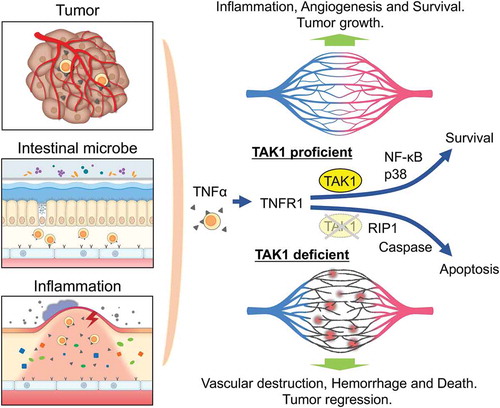Figures & data
Figure 1. Role of TAK1 in maintaining vascular integrity by preventing endothelial cells apoptosis caused by TNFα secreted in the microenvironments.
TNFα produced in the tumor microenvironment, induced by gut microbe activity, or induced by inflammation, stimulates through TNFR1 on endothelial cells (ECs). In wild-type mice, TNFR1 activation leads to NF-κB and p38 activation which induces cell activation and enhances survival. However, in the TAK1-deficient ECs, apoptosis occurs in a RIP1-dependent manner, which resulting in vascular destruction, hemorrhage and death of the animal. Targeting endothelial TAK1 may be developed as an anti-angiogenic therapy. TAK1, TGF-β-activated kinase-1; TNFα, tumor necrosis factor alpha; TNFR1, tumor necrosis factor receptor 1; NF-κB, nuclear factor-kappa B; RIP1, receptor interacting protein kinase 1.

